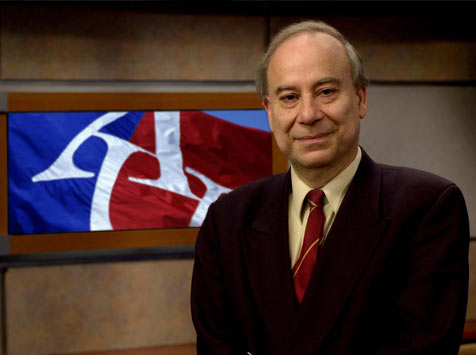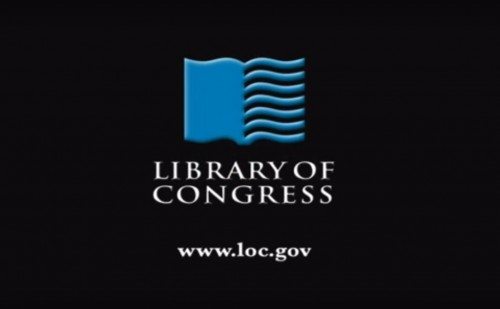Library of Congress’s ‘The Poet and The Poem’ series features Akbar Ahmed.
By Brianna Curran
 WASHINGTON, DC: It was a crisp January morning as we ascended the stairs to the Library of Congress in Washington, D.C. With the Washington Monument towering above the city and the Capitol building standing firm before us, it was difficult to miss the symbolism of this moment.
WASHINGTON, DC: It was a crisp January morning as we ascended the stairs to the Library of Congress in Washington, D.C. With the Washington Monument towering above the city and the Capitol building standing firm before us, it was difficult to miss the symbolism of this moment.
Ambassador Akbar Ahmed, “the world’s leading authority on contemporary Islam,” as declared by the BBC, had been asked to share his poetry on “The Poet and The Poem,” a prestigious podcast published by the Library of Congress.
The symbolism was particularly striking when I considered the recent rhetoric I had been hearing from major media outlets concerning Islam in America today. And yet, here was Ahmed, Ibn Khaldun Chair of Islamic Studies at American University’s School of International Service, entering America’s monument for knowledge to read his poetry about love, about peace, and about Islam.
RELATED: The Library of Congress podcast is available at http://www.loc.gov/poetry/media/avfiles/poet-poem-akbarahmed.mp3
As concerned U.S. and European citizens question the place of Islam in society, and as presidential candidates spout generalizations and prohibitions on entire communities, many are left wondering how vastly different cultures can coexist in the wake of the Syrian migrant crisis. Ahmed’s recently released documentary, Journey Into Europe explores this predicament through fieldwork researching Muslim identity in Europe.
But while Ahmed’s ethnographic study presents a compelling academic argument detailing the steps Europe can take to ease religious tensions, his poetry reveals an even simpler explanation. “It is love, love, love”, Ahmed writes in his poem, What is it that I seek? He includes names from Abrahamic and non-Abrahamic traditions. There can be no boundaries in the embrace of love.

Discussing and reading from his poetry on “The Poet and The Poem” with Grace Cavalieri recently, Ahmed employed the world’s most universal language to express his views on the state of today’s turbulent political and religious affairs. From Shakespeare to Whitman, Rumi to Maya Angelou, poetry has been utilized as a tool for centuries to transcend generations and cultures to convey emotion and perspective.
Though many know him as a diplomat, a political commentator, a filmmaker and an academic, few are familiar with his poetry, though they should. Grace Cavalieri, host of “The Poet and The Poem” complimented the poet for his imagery, language and insights. She dubbed Ahmed “Ambassador of the Heart” as he shared his poems from his recently published collection Suspended Somewhere Between with the program’s widespread audience across the United States.
Bringing an intensely personal dimension to Ahmed’s career, he described his first memory as a child in his poem, Train to Pakistan. Depicting a bloody scene of the “killing fields of the Punjab” in 1947 Ahmed writes of the first of his many encounters with religious violence. Through the horror and the tragedy, however, Ahmed’s perspective is unique as he recognized this violence as a “desperate need to love and be loved.” It is this raw, compassionate and human interpretation that is so often lacking in today’s attempt to understand one another in our current state of rapid globalization. But perhaps, as Ahmed shows us, this can be changed through unconventional means such as poetry and the arts.
When asked why he writes poetry, Ahmed replied that since boyhood, poetry has been an escape. Grace noted how improved our world might be today if each of us reflected inwardly through poetry and mindfulness before reacting outwardly. Among Ahmed’s poems concerning his homeland of Pakistan, his love for his family, and Islam are poems painting distinct moments in history. These historical poems illustrate the vitality of learning from history to create a stronger future.
I was personally struck by the distinct contrast between Ahmed’s unsparingly honest poetry and the rhetoric that is so often associated with Islam today. While presidential candidates and media outlets commonly reject the notion that Islam is compatible with American society, Ahmed’s poetry spoke to exactly the opposite.
In his poem To My Mother, Ahmed reveals his love for his mother and expresses his regret for giving his mother cause to worry such as driving too fast or not answering letters. He pays tribute to her spiritual influence in his life. This particular poem resonated deeply with me, as I know that this relationship between a mother and child is one that is shared universally, regardless of culture or religion.
This aspect of universality is incredibly widespread in Islam, though rarely “news” for mainstream media outlets. Sufism, the mystical and loving dimension of Islam practiced by Ahmed and millions of Muslims worldwide, stresses the idea that we all share a uniquely human experience in this life, and seek love and knowledge through spirituality.
This theme is beautifully woven throughout Ahmed’s poetry, and even exemplified by the Library of Congress in which the poetry was shared. Constructed to serve as a temple of knowledge, the Library of Congress is an architectural symbol of America’s founding fathers’ challenge to the people to seek knowledge and to grow in our understanding of one another. The spirit of one of our greatest founding fathers, Thomas Jefferson, is reflected in the Library of Congress. His vision of creating a new nation based in knowledge and religious pluralism can still be seen in the work of people like Grace Cavalieri.
As a young American recently graduated from university and determined to preserve and fight for the vision of my country as depicted by its founding fathers, I grapple with the best way to engage with the ideas of prejudice and intolerance that have been currently generated during this election year. I wonder how the founding fathers would have reacted to the leading Republican presidential candidate Donald Trump declaring that all Muslims should be banned from entering the United States. I have heard talk of mosques being closed and even internment of the community.
In this time of heated rhetoric and irresponsible expressions of hatred I believe the answer has to be to reach into our souls and discover what is common to us. We are facing a crisis bigger than it seems, and the answer must also be as effective as universal.
Poetry reaches us at a primal and a human level, touching the love, hate, anger, joy, and hope that each of us has felt in our lifetime. Ahmed’s poetry challenges the narrative that Islam is “inherently violent” and instead shifts the focus to the human predicament that we find ourselves in today: the desire to love and to be loved.
(Brianna Curran, whose field of interest includes the Middle East and relations between civilizations, is a graduate of American University in Washington, DC.)




3 Comments
“Immensely proud of my dear brother Akbar. In fact he is a great human being. May God bless him with good health and long life so he could carry on serving God and His people.”
-Dr James Shera MBE former Mayor of Rugby UK
I have known Professor Ahmed from the time we were in school together in Pakistan and share with him many experiences including the train ride to Pakistan at the time of the partition of India. I have nothing but admiration for the wonderful and tireless work he does in building bridges between communities. As someone, who has deep personal knowledge of both the world of Islam and the West, I would hope that we see more of Professor Ahmed in the mainstream media to counter the surge in Islamophobia and some of the rhetoric emerging in the Presidential race. I am thinking in particular of Donald Trump who thinks that alienating close to a quarter of humanity is the right message from a U.S. Presidential hopeful.
Kudos to Ambassador Ahmed for showing us the true Islam. His constant efforts to reach out to others both in the US and around the world are exemplary. We all need to learn about and understand each other. Thank you, Ambassador Ahmed, for constantly reminding us of this, and for the love you have for all mankind.